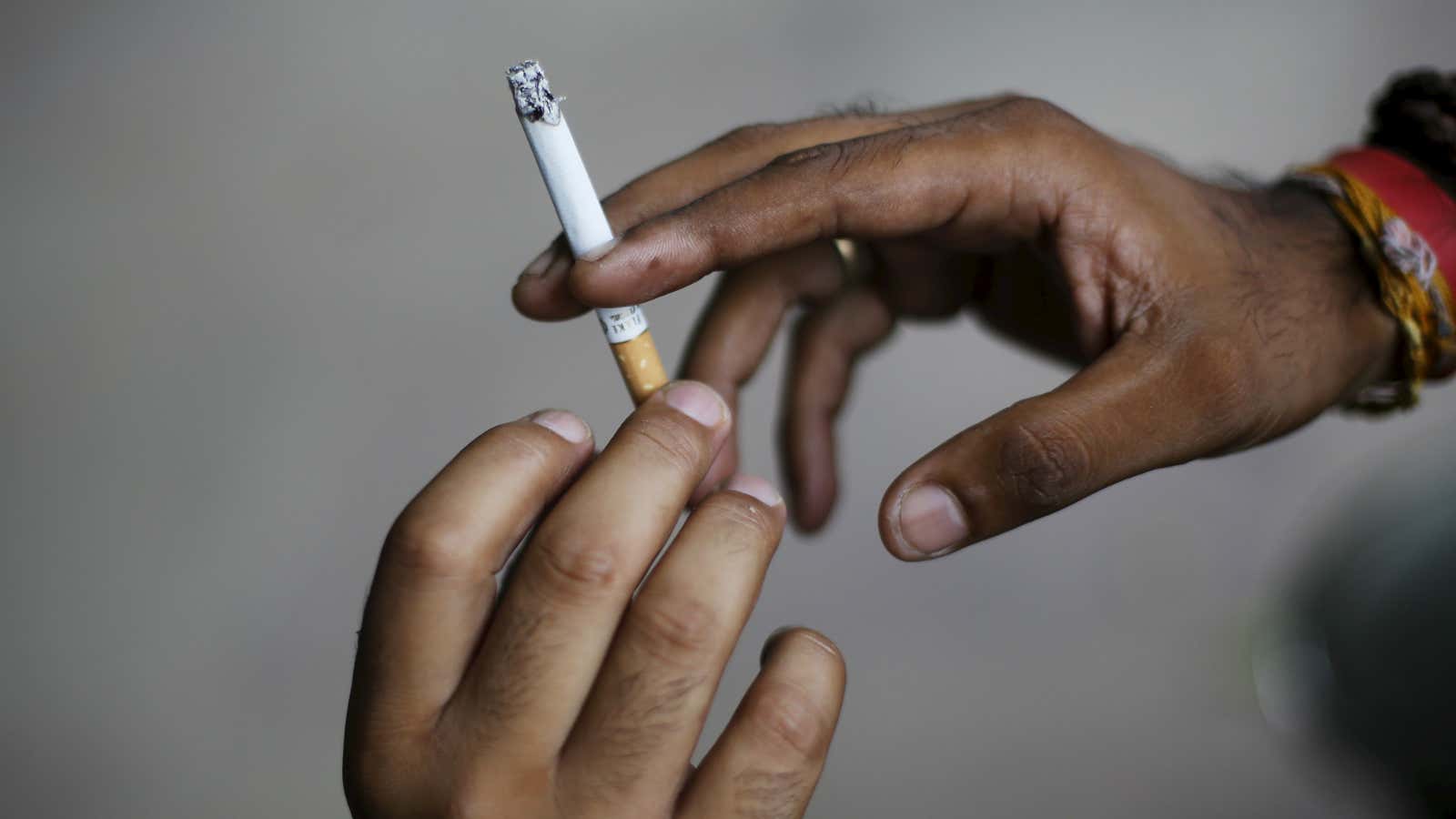A 75- year-old cigarette maker has broken ranks with its peers to print larger health warnings on tobacco products as ordered by the Indian government.
Golden Tobacco Company, the Gujarat-based manufacturer of Panama and Golden Gold Flake cigarettes, will cover 85% of its cigarette packets with pictorial warnings on products manufactured in April. “We have started following the rule from April 2015,” a Golden Tobacco Company official, who did not wish to be named, told Quartz. “Other tobacco companies in India are likely to file a writ petition at the court against the new rule.”
In October 2014, India brought in a new law that called for covering 85% of the cover of tobacco products with pictorial warnings, as compared to 40% now. The rule came into effect on April 1.
Since then, tobacco makers in India, led by the Tobacco Institute of India (TII), have been up in arms and, in some cases, even stopped production.
“The implementation of any change in the health warnings on the cigarette packages is an elaborate process for the manufacturers, entailing months of preparation involving substantial cost and effort,” India’s largest cigarette manufacturer ITC said in a statement (pdf) on April 2. “In this situation, the company, as any prudent person would, did not commit to wasting substantial resources in creating the large number of cylinders and other tools necessary for a change-over of the warnings. As a result, the company is at present not in readiness to print the health warnings as now once again notified.”
Other members of the Tobacco Institute of India (TII), including Godfrey Phillips and VST, said that they have decided to shut down their factories in protest. TII members account for over 98% of the India’s domestic cigarettes sales and have argued that they stand to lose over Rs350 crore a day due to the new law.
Activists meanwhile say that the move could dissuade smokers. “Studies have proved that larger warning on tobacco products prevent people from getting addicted to such products,” Vishal Rao, an oncologist told the Times of India newspaper last month. “The government should be committed to reducing the advertising by tobacco companies and taking effective steps for consumer awareness through increased pictorial warning.”
Almost a million people die every year in India from tobacco use. Over the past few years, the government has stepped up means to curb smoking in India. In November 2014, it considered banning the sale of loose cigarettes. Many smokers in India, including minors and students, buy single or multiple sticks of cigarettes as they are more affordable than entire packets.
The government has also been steadily raising excise duty on cigarettes. Yet, they are cheaper than in many other parts of the world. A pack of Marlboros costs about $2 in India, but $16.23 in Australia. Affordability has also led to a rise in smoking in India, with the number of smokers growing by a staggering 35.7% between 1980 and 2012, according to a study by the Institute of Health Metrics and Evaluation.
